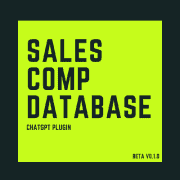5 Steps for Building a Winning CRE AI Strategy in 2024 and Beyond
The conversation around AI and AI strategy is heating up in almost every major industry, including commercial real estate. In healthcare, innovative providers are learning to leverage AI to provide more personalized care options for their patients. In the world of finance, AI-backed security features are making personal finance tools more secure and easier to use than ever before.
Even submarkets in major industries have been impacted by the growing demand for innovation. The retail sector specifically in CRE has been experiencing a bit of a renaissance as major retailers invest in the in-store experience, providing their customer base with shopping experiences that blend technology and luxury.
However, the commercial real estate industry, as a whole, has struggled to adopt AI. As a result, the pace of CRE business, proprietary data accuracy, and technological innovation have not grown at the same exponential rate as other leading industries. But AI-powered innovation awaits CRE leaders, from deal momentum to operating efficiency. These are five easy steps to get started when building a winning CRE AI strategy with a vertically integrated AI solution.
Note from Spencer and Michael: This is another post from our guest contributors and industry professionals. Hannah Overhiser is the Content Marketing Manager at Prophia, a vertical AI lease abstraction and contract intelligence solution built to address the unique challenges of the CRE industry. Click here to learn more about Prophia.
1. Start With “Clean” Data
Artificial intelligence and machine learning tools are only as powerful as the data supplied to them. If your team is considering AI adoption at some point in the coming year, starting with a clean and accurate portfolio dataset is key. This includes scrubbing your lease and tenant data of any inaccuracies, educating your team and fellow stakeholders about data quality standards, and running frequent integrity checks on your portfolio data to ensure third-party systems are handling the most up-to-date documents.
2. Find a System Trained on CRE-Specific Data
Highly specialized industries like commercial real estate have data and business insight needs that cannot be achieved with public data found on the internet. That’s why, when building an AI integration strategy, it’s important to consider solutions that have been rigorously trained on private industry-specific datasets.
For commercial real estate CTOs and CFOs, that means searching for a machine learning model trained on proprietary CRE data, including real commercial contracts, renewal documents, original leases, amendments, and financial documents. Without this focus, AI models cannot build the level of nuance needed to understand the complexity of CRE data.
3. Consider Your Growth Strategy
Every real estate owner has growth ambition even despite some of the market challenges. Asset classes like medical office, retail, industrial, and data centers are performing well and offer opportunities for investment, expansion, and portfolio diversification. Your organization’s unique growth strategy should always be a part of the AI adoption conversation.
Part of considering strategic growth also includes supplying critical teams and team members with a solution that makes them more effective. As AI becomes a bigger part of our daily lives, industry leaders will need to learn to view this technology as an assistant, not a replacement, to valuable team members. Thus, a critical component of building a CRE AI strategy is finding the right solution or tool that makes them more efficient and able to focus on objectives of higher value.
4. Research the AI Solution’s Track Record
When building an effective CRE AI strategy, it is also important to conduct your own due diligence on the provider’s track record. Ask vendors whether or not they employ actual data scientists or engineers to design and maintain their solution. Additionally, request to see proof of success and customer applications to ensure you are approaching the best AI provider for your business intelligence needs.
5. Become an Early Adopter
There is always a business urgency to becoming an early adopter in your field. However, the most important reason to become an early AI adopter in CRE is not for the market reputation or competitive advantage, but for the removal of performance ambiguity caused by managing critical portfolio data with antiquated practices.
There is no way to know if you are consistently under billing tenants, missing critical dates, or overlooking important encumbrances if you aren’t measuring portfolio performance. This not only opens your organization to unnecessary exposure, it also affects your ability to effectively mitigate risk and, ultimately, your ability to grow.
Conclusion
AI, like any other platform or workflow solution, is a tool. AI can make your team more efficient and support business growth. 2023 marked the year many CRE leaders and principals first heard of AI affecting their industry and CRE AI strategy. 2024 already promises to be the year of adoption and finding the AI vendor that provides the business solution your team needs to be more impactful and dynamic in the market.
Frequently Asked Questions about Building a Winning CRE AI Strategy in 2024 and Beyond
Why has the commercial real estate industry been slow to adopt AI?
The CRE industry has struggled with AI adoption due to slower pace of business, inconsistent data quality, and limited innovation infrastructure compared to other industries. As a result, it has not advanced at the same exponential rate as sectors like healthcare or finance.
What is the first step in building a CRE AI strategy?
The first step is ensuring your organization has clean, accurate data. This involves scrubbing tenant and lease data, educating stakeholders on data quality, and running regular integrity checks to maintain up-to-date information for AI systems.
Why is it important to choose an AI system trained on CRE-specific data?
Generic models trained on public data may not capture the complexities of CRE leases, amendments, and financial documents. A system trained on proprietary CRE datasets can understand and process the nuances of commercial real estate more effectively.
How should growth strategy factor into AI adoption in CRE?
AI tools should be evaluated based on how well they support your organization’s investment and expansion goals. They should empower critical team members to become more efficient and shift focus to higher-value strategic objectives.
What due diligence should be done before selecting an AI vendor?
You should verify that the vendor employs qualified data scientists or engineers, and ask for proof of success including customer use cases and real-world applications. A proven track record ensures the tool is designed and maintained with expertise.
Why is early adoption of AI beneficial in CRE?
Early adopters can eliminate performance ambiguity caused by outdated practices and gain insights that reduce risk. The post states: “you can’t mitigate what you don’t measure,” and AI provides visibility into billing, lease terms, and risk exposure.
What is the main benefit of AI for CRE teams?
AI enhances efficiency and decision-making, helping teams manage portfolio data more accurately and spend more time on strategic initiatives rather than repetitive administrative tasks.
How should CRE leaders view AI tools within their organizations?
AI should be seen as an assistant, not a replacement. The right AI tools complement human expertise by streamlining workflows and empowering team members to deliver more impactful results.

Prophia seeks to leverage AI and machine learning to enable CRE decision makers to effectively manage their data and optimize portfolio performance.








